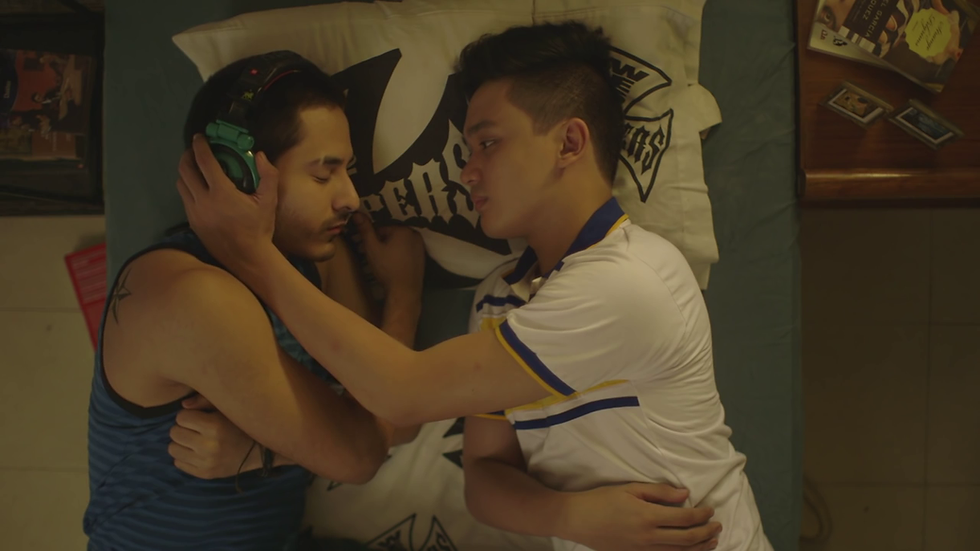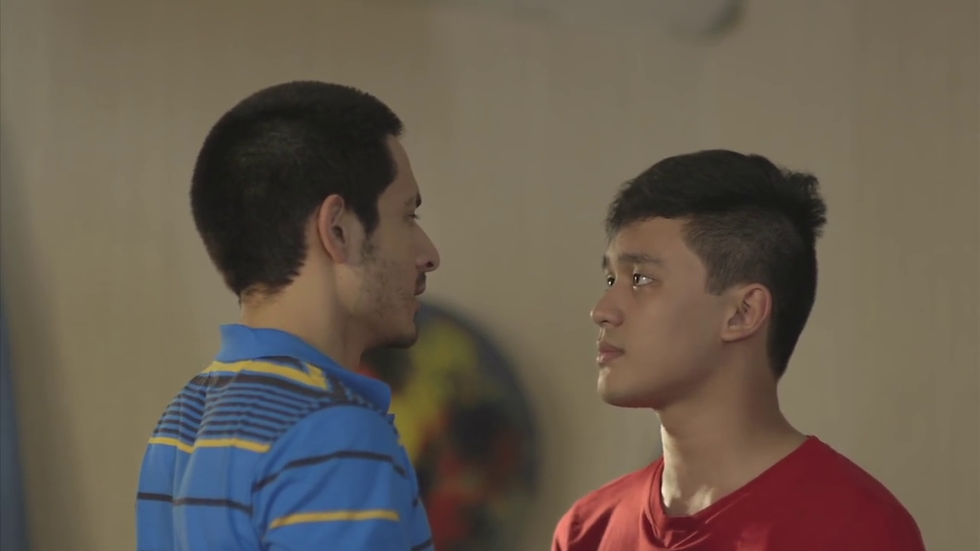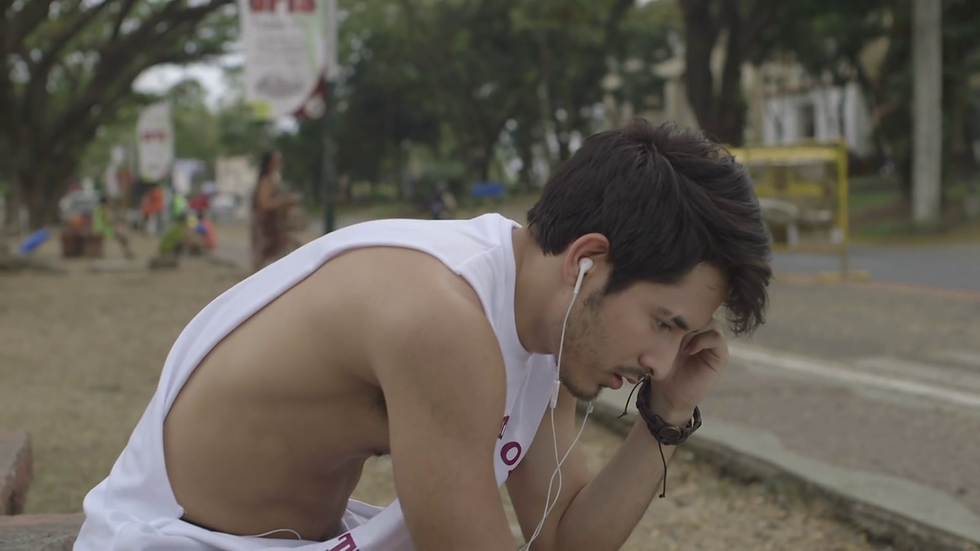The waiting game
- Aug 21, 2016
- 3 min read
A review of Adolfo Borinaga Alix Jr.'s "4 Days."

(Screenshot from YouTube.)
Love, in all shapes and sizes, has always been an examination of social dynamics in Adolfo Alix Jr.'s cinema: be it the matter of a May-December affair in "Donsol," a mother's plight in a world ruled by men in "Chassis" or the maddening journey of a transgender in "Porno." "4 Days," Alix's latest feature closely resembles "Daybreak" and 'Muli," his previous films that tackle gay relationships, but only thematically. "4 Days," as viewers will find out, is a step away from Alix's usual narrative route.
The film takes place over the course of four years, on four consecutive Valentine's Days, as Derek (Sebastian Castro) goes through college from one failed heterosexual relationship to another. Meanwhile, Derek's best friend Mark (Mikoy Morales) is waiting on the sidelines, always ready to mend Derek's wounds yet secretly harboring romantic feelings. We watch, or observe rather through Albert Banzon's intrusive long takes Derek and Mark's relationship as it unfolds from friendship to something else. As in all of Alix and Banzon's collaborations, cinematography is key to the narrative design, and here the long takes trap us in the situation, as we are forced to witness the uncomfortable silences and the tension between the two characters. After all, people do not really recite epic lines to one another all the time.
Which is exactly why the film's structure works, despite the initial ambiguity, because Alix knows precisely when to use the element of silence and when to dish out a heated verbal joust during the film's climactic confrontation scene.

(Screenshot from YouTube.)
"4 Days" isn't really a new story, but the unpredictability of the storytelling and the narrative push-and-pull makes it one of the more inventive films of the genre in recent memory. The conflict presented is two-pronged: first, that Derek is primarily heterosexual, and second, that social judgment is still an issue in this day and age. But within the context of the story, the judgment and eventual shame exists only in Derek's mind.
Drone shots of the University of the Philippines Diliman campus represent the passage of time, while a looming phallic symbol of a landmark is captured from above, perhaps as a pun to underline the queer nature of the story.
Mikoy Morales and Sebastian Castro complement each other onscreen, Morales with his tough and heartbreaking take on Mark, and Castro filling Derek full of reservations, doubts and unspoken multitude of feelings. Even Rosanna Roces who appears briefly in one pivotal scene, never fails to amaze.

(Screenshot from YouTube.)
"4 Days" is meant to let us experience the cruelty of time, which in this case has become a burden for both Mark and Derek. We only get the four days in these characters' lives because it's only what the filmmaker will allow us, leaving us to fill in the blanks of how their relationship grew within the confines of the university, and most importantly, within the hallowed walls of their dormitory room. Yet, these crucial four days are more than enough to paint a picture of two people drawn by fate, or some other cruel force of nature, and are later defined by their choices. In the end, love is always about sacrifice, on what one is willing to risk for the sake of the damned four-letter word.
Disclaimer: the contents of this review are solely the opinion of the writer, and does not necessarily represent the whole PLM Film Society.





















Comments